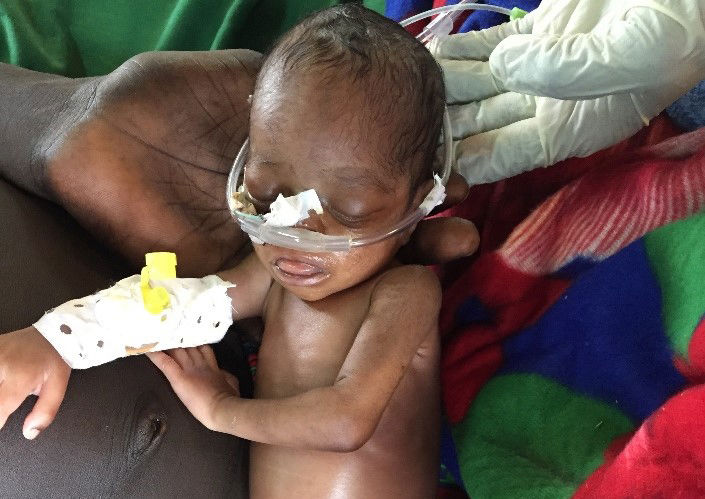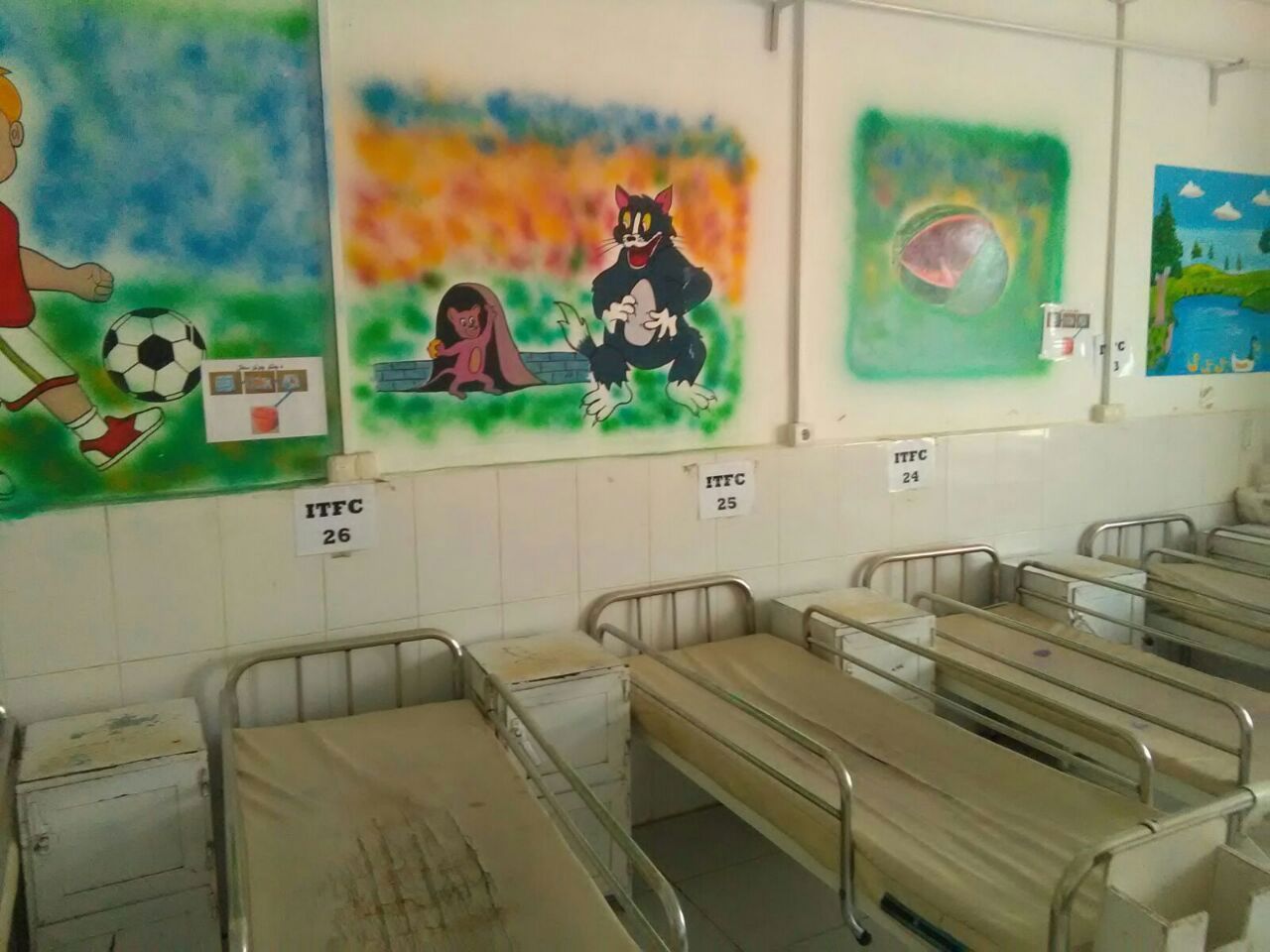Here we try to plant seeds of hope, but in the aftermath of civil war...
Sometimes your medical team pulls a miracle, but heartbreakingly the family asks you to let go.
A 780g preterm baby (normal >3kg) came to us - miraculously and impossibly still alive after being starved for 10 days, although in terrible condition and on the brink of death. She was still struggling to breathe and we were super motivated to give her a fighting chance!

© Kai Cheong
On the photo is her after 5 days with us and receiving best treatment possible in this country, but without all the special Intensive care unit tubes / ventilators /essential medicines that we have back home for babies so small. We struggled to optimize her condition with the most basic drugs, but armed with neonatal knowledge of treating preterms back home in Hong Kong. Thankfully she responded very well and gained weight every single day.
She was a bit puffy even after careful fluid administration, as we have no high-tech infusion pumps, but otherwise very healthy.
Healthcare here is not a choice, but happens as a last resort, and at the end of a complex socio-political-economic-geographical chain of survival. Despite seeing the improvement, women here have learnt to give up on children that are weak because they have 9 other children to feed. They don't understand science. They cannot afford to believe in faith. They are not ready for the message that it doesn't always have to be this way, and that you can trust something outside of what you think you feel. There are no numbers or facts or figures, or an MSF doctor that can change their minds. What people learn from civil war is that we have to let go, and we have to let those that won't survive die, and we have to move on.
We stabilised this smallest impossibility of a child, and I have every conviction he would have continued to improve under our care.
But we had to let the family sign a refusal of medical care form and let her walk out the door, even after days of explanation and counselling from all the village elders. "I am going to take her home to die," the mother said, "this is taking too long. She is not going to survive."
I know a lot of children that could have had a chance at survival here. I have already seen what MSF can do and I know what my team here is capable of. We saved a starving 780g baby and helped him grow without any of the resources we have in a developed country. We are here to send the message that these individuals and this community's humanity is important and valid. We are here struggling to try against all odds: to show them that as fragile as life is, it can also be tenacious and kind and forgiving, with the right support. That these lives are important.
But when it comes to choices, sometimes it is really humanity and all it encompasses that lets us down... What can we do but act in the way we know best, as doctors and nurses; or as mothers and fathers with too many mouths to feed in a country on the brink of starvation......



